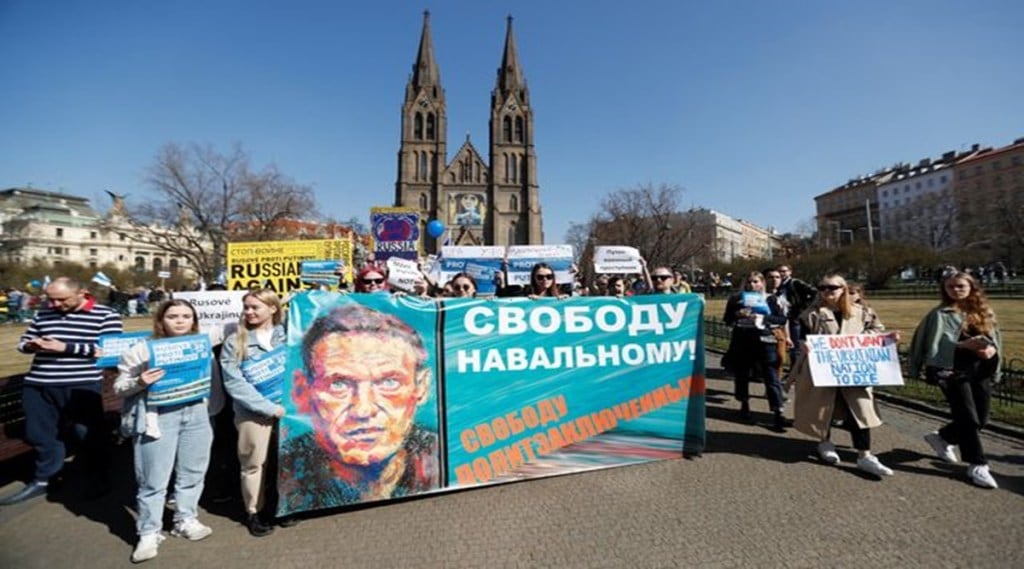I have been extremely distressed by the war which Russia is waging on Ukraine (that will enter the 32nd day when you read this column). When I began to take interest in developments around the world, six words uttered by Pope John XXIII (the ‘Good Pope’) had made a deep impression on me: No More War, Never Again War.
Since then, of course, there have been many wars in the world — big, small; short, long; on own territory, on the border, in a far away land; proxy wars etc. The one eternal truth that emerged from these 20th/21st century wars was that there will be no winner at the end of the war. War appears to offer no solution to any festering problem. Despite India’s convincing victory in the 1971 war, India and Pakistan remain bitter rivals locked in a territorial dispute. Despite two superpowers taking turns to ‘liberate’ Afghanistan, that country is under the firm control of the Taliban.
Pot & Kettle
Thirty years after Russia supposedly threw off the yoke of the Communist Party, Russia’s ruler is a former member of the feared intelligence agency of the former Soviet Union. Mr Vladimir Putin has been in office since May 2000 and wields absolute power. Under Mr Putin’s rule, Russia has annexed Crimea, recognised the two break-away ‘republics’ of the Donbas region of Ukraine (Donetsk and Luhansk), prised two regions from Georgia (Abkhazia and South Ossetia), and extended military assistance to Syria to quell a civil war. However, nothing prepared the world for the war that Russia is waging on Ukraine.
It must be admitted that everything that Russia has done in the last 20 years, the Western countries, especially the United States, had done in the 20th century. Regime change was a favourite pastime of American presidents. Instigating civilian unrest, engineering military coups, plotting political assassinations, installing puppet regimes, imposing economic sanctions — nothing was forbidden. The most deplorable and unjustified war waged by the United States was in Vietnam. In 2003, the US invaded Iraq on the blatantly false pretext that Saddam Hussein had accumulated weapons of mass destruction.
Cause is no cause
What is unfolding in Ukraine is a heart-rending tragedy. The origins of the Russia-Ukraine war may be traced, partly, to the unrelenting expansion of NATO. At the end of the Cold War, unified Germany took the place of West Germany and the then US Secretary of State James Baker assured Russia that NATO will not ‘move an inch beyond Germany’. The German border was 5,439 kilometres away from Russia. Since 1999 NATO has expanded to include 14 new member-countries. As Georgia and Ukraine tilted towards the 30-member NATO, and the organisation too seemed willing, Russia drew the red lines. If the two countries joined NATO, Russia will be staring at NATO across its border. Far from NATO not moving an inch beyond Germany, NATO would have arrived within an inch of Russia.
Russia was genuinely concerned about its security and it received no credible assurances from the US or other NATO countries, but no one had crossed the Russia-drawn red lines. In fact, when Russia annexed Crimea (which was part of Ukraine) and two regions of Georgia were absorbed into Russia, the US and the NATO countries quietly acquiesced. There was no reason for Russia to escalate its opposition to Ukraine and start a destructive war.
The extent of devastation and destruction in Ukraine caused by the war is horrendous. Of Ukraine’s population of 44 million, nearly 3.5 million have fled the country and another 6.5 million (including half of all children) have been displaced from their homes. Towns have been razed; the port city of Mariupol has been reduced to a rubble. Millions are stranded without food, water or medicine. Thousands have been killed. Yet, Ukraine’s President and the people are defiant and have refused to surrender. Whenever the war ends, there will be no winner. Certainly, Russia will not be a winner. It will not be able to ‘annex’ Ukraine. On the contrary, Russia would have earned a hostile neighbour and a permanent enemy, it would have lost thousands of young soldiers and billions of rubles worth of military hardware, many young and talented Russians would have quietly left the country and its economy would be crippled. Russia will gain neither security nor respect.
Diminished India
As an Indian I feel helpless. I am clueless about the Indian government’s policy. In my view, no argument can justify the war. So, despite the six principles outlined by the External Affairs Minister, why cannot India say that the war is unjustified? Why cannot India appeal to Russia to stop raining bombs on the civilian population and destroying homes, schools and hospitals? Why cannot the Prime Minister travel to Moscow and Kyiv and try to mediate a ceasefire like the Prime Minister of Israel, who is making a brave attempt to do so? What has rendered India so incapable of any initiative and so impotent to intervene?
This essay is not intended to be a scholarly analysis of the conduct of foreign policy. This is a personal view that I hold and that I have heard from several thoughtful observers: the silence in the face of a grave moral challenge and the repeated abstentions in world fora have diminished India.

